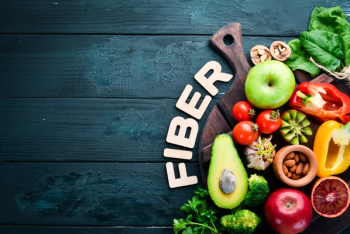
- Nutritional Outlook Vol. 26 No. 6
- Volume 26
- Issue 6
The ongoing evolution of plant-based cheese
Plant-based cheese still has many limitations, but growing consumer acceptance and technological advancements are poised to take this category to the next level.
Dairy alternatives have successfully become commonplace in our daily lives. On most grocery store shelves, consumers can choose from a variety of plant-based milk, ice cream, and even plant-based yogurt options. Many consumers of these products are not even exclusively vegan or vegetarian. One area that continues to give manufacturers trouble, however, is the plant-based cheese category. There are certainly options, but your average flexitarian is probably not picking a vegan cheese over their favorite cheddar.
According to the Plant-Based Foods Association’s (PBFA) “Unmet Needs Survey,” which uses data from 84.51°, a retail data, insights, and media company, consumers are largely unhappy with the taste and texture of plant-based cheese options. According to the survey, 73% of respondents agreed with this statement: “I wish there was a better plant-based cheese alternative that tasted like regular cheese, melted well, and didn’t have a grainy texture.”
That said, people are still buying plant-based cheese products, so the products can’t be all bad. Retail sales data from PBFA indicate that in 2022, plant-based cheese sales reached $230 million in the U.S. While this was a slight decline of 1.71% compared to the previous year, and household penetration of plant-based cheese is at 5%, the repeat-buying rate of these products is very high at 49.9%.
So, there is clearly a devoted consumer base, and with the right innovations, the acceptance of plant-based cheeses is poised to grow. “Consumers want a plant-based cheese that performs similar to dairy—where it is creamy cold and melts when heated. Selecting the right combination of hydrocolloids, proteins, and emulsifiers can create this type of product,” says Elizabeth Price, senior scientist at Kerry (Beloit, WI). “Knowing how each ingredient affects your product helps to build the ideal plant-based cheese that is more versatile.”
Finding the right ratio of functional starches and fats is crucial for addressing challenges related to functionality offers Sudarshan Nadathur, chief flavorist, dairy and protein, for ADM (Chicago). “Formulators can choose from a variety of starches and functional starch blends, including native or modified corn, tapioca, and potato, as well as from fats such as coconut, canola, and other oils. These starch and fat options can help achieve the desired texture and melting points, depending on what the cheese formulators are looking to mimic. However, it is worth noting that some starches may produce sticky textures, becoming pliable, and may restrict melting properties,” says Nadathur.
Emerging technologies such as fermentation are also bound to push the boundaries of plant-based cheese production. Daiya, for example, recently announced a multimillion-dollar investment in a natural fermentation technology that would help produce plant-based cheese products that taste better, melt better, and stretch better than other plant-based cheeses. A report from ADM, titled “ADM Identifies Four Factors Driving the Expansion of the Alternative Protein Ecosystem,” found that consumers are receptive to new advancements in food technology, with 69% of survey respondents expressing interest in dairy alternatives derived from fermentation. The potential barrier of new technology, according to this report, is the perception of how close to nature consumers perceive the technology to be. The term fermentation in the more traditional sense may have a more positive perception than precision fermentation, for example, but precision fermentation has a more positive connotation in some cases than cell-cultivated ingredients.
“There is opportunity for consumer acceptance and adoption of these novel sources and technologies, with global plant-based product consumers—defined as flexitarians, vegetarians, or vegans—increasingly more open to trying new protein options,” says Nadathur. “However, consumer awareness and consumption still centers on plant proteins. This poses an opportunity for more hybrid solutions to bring together familiar protein sources like soy or pea with the new, such as precision fermentation.”
Articles in this issue
over 2 years ago
The future of natural preservativesover 2 years ago
Why is apple cider vinegar so popular?over 2 years ago
Plant-and-animal protein blends are on the riseover 2 years ago
Prebiotics are no longer “niche” in Asia-PacificNewsletter
From ingredient science to consumer trends, get the intel you need to stay competitive in the nutrition space—subscribe now to Nutritional Outlook.





